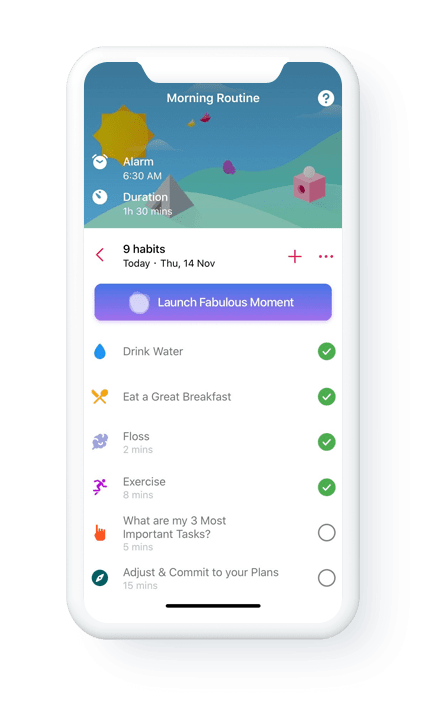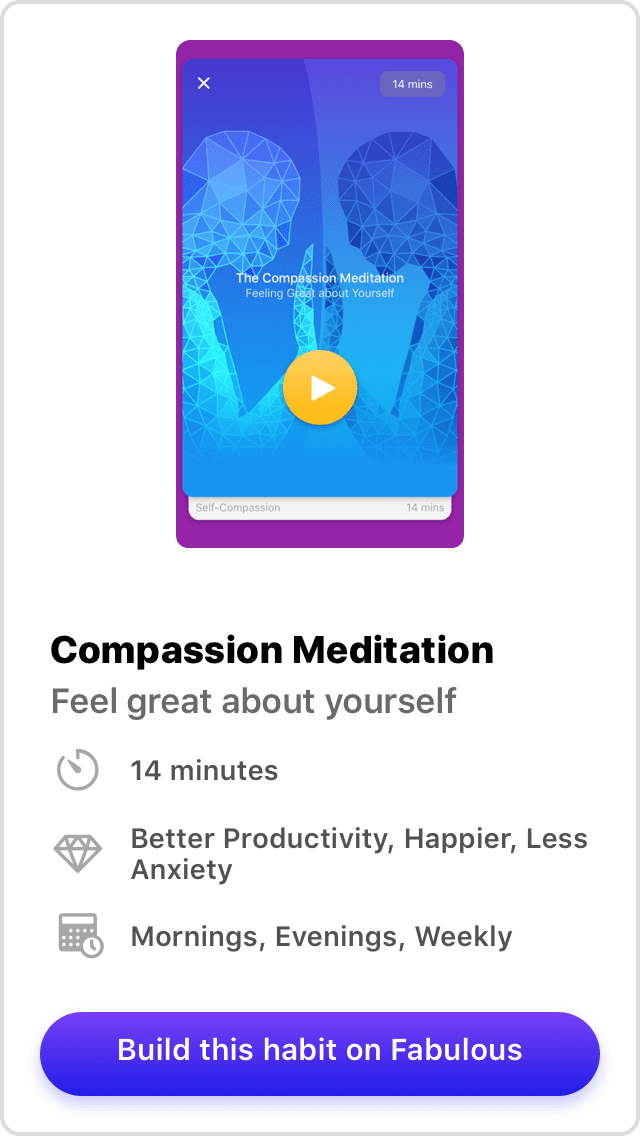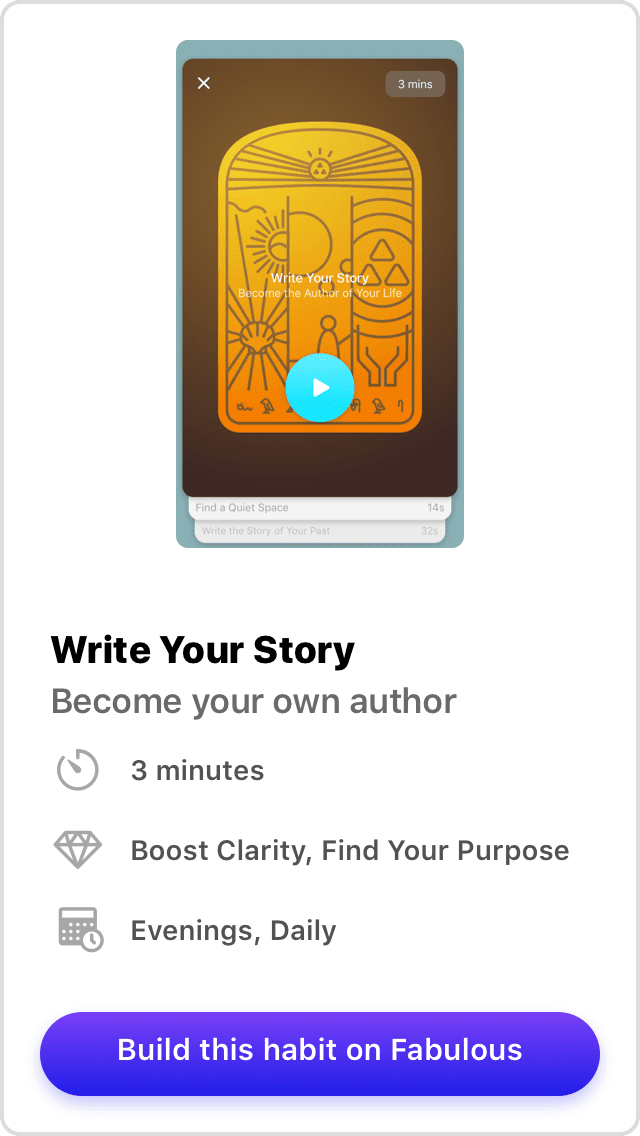People have been putting pen to paper as a means to clear their thoughts since the invention of writing. People who keep a journal praise the pastime as a way to help themselves process their emotions, reflect on their thoughts, and outline their goals for the future.
But you may be surprised to learn that journaling is backed by science. Psychologists frequently prescribe a regular journaling practice to patients as a means to help them manage symptoms of anxiety, depression, and other mental health issues.
Fabulous also believes in the power of journaling. There’s even a Write in My Journal habit you can add to any of your daily rituals if you’re ready to give journaling a try. Check it out in the app!
If you’re not entirely sold yet, we’ve compiled just five of the countless benefits of keeping a journal, along with some tips on how to start your own.
1. Writing out Your Feelings Can Help You Regulate Them
Studies have found that writing your thoughts and feelings down helps your brain to regulate your emotions. Your thoughts can feel extremely complex and abstract when trapped inside our minds. This can make already difficult problems feel even harder to solve, which ramps up your anxiety.
Writing those thoughts down forces you to bring them out of the abstract realm of your mind and into the real world. Seeing your thoughts in writing on paper makes them easier to analyze while also creating some much-needed distance between you and your worries.
It doesn’t even have to be a diary entry. Song lyrics, poetry, and prose are all effective ways of processing your feelings.
2. Journaling Can Be Therapeutic
There’s a reason therapists often prescribe journaling! By writing things down the things that happen to us, clinical psychologist James Pennebaker found that it deepens our understanding of events, along with our thoughts and feelings of said events. While the science behind this isn’t entirely understood, it’s possible that writing down thoughts and feelings is like talking to a therapist. In both cases, we unload our emotions and mental states and free up our brain to think about other things.
3. Journaling Helps You Stress Less
Psychologists have found that writing about traumatic events, such as a romantic breakups, can clear your mind and help you think rationally about them. Doing so can ease your sadness and help you process and move on. Rather creatively, this is called the ‘Bridget Jones effect’, as a nod to the popular film, Bridget Jones’s Diary.
Grief is a powerful and complicated feeling that can take time to work through. While you journal, be sure to also take time to be extra kind to yourself. If you’re feeling down, try the Fabulous Compassion Meditation, located under Make Me Fabulous. You may also want to talk to a friend or therapist to help you.
4. Journaling Is Also Good for Your Body
That’s right, journaling is good for your body, too! Studies have found that journaling can help fight conditions such as asthma, rheumatoid arthritis, AIDS and cancer. People who journal report fewer visits to hospital or doctors, improved blood pressure, lung and liver function, and improved immune system functioning.
Journaling may even help wounds heal faster. In 2013, one study found that people who journaled for 20 minutes a day about their feelings before a medical biopsy healed faster than people who didn’t keep a journal.
5. Journaling Makes You a Better Problem-Solver
When faced with a problem, people generally use logic to try and solve it. This activates the left side of your brain, which focuses on analytical and logical matters. You use your left brain when solving math problems and Rubix cubes.
However, sometimes you need to get creative to solve a problem. By writing them down, you activate the right side of your brain, or the creative side. When you unleash your creativity, you free up your brain to think of unconventional solutions to complex problems, solutions that logic alone would never find.
How to Start Journaling
Journaling can be whatever you want it to be. If you want to write songs, go for it! It doesn’t matter if they’re terrible. No one but you will ever see them. If a classic “Dear Diary” approach sounds more appealing, try that! Some people even illustrate or draw comics as their journaling method.
It can help to invest in a notebook that sparks joy for you. Don’t be afraid to shop around and find tools that will make you want to use them. The quality isn’t important; even a cheap notebook can be decorated. What matters is that they suit your needs and lifestyle.
Finally, set aside a regular time to write in your journal. You can add a reminder in the Fabulous app to hold you accountable. Or, if you want to start right now, Fabulous’s journaling exercise Write My Story is the perfect way to get your feet wet.
Happy writing!






